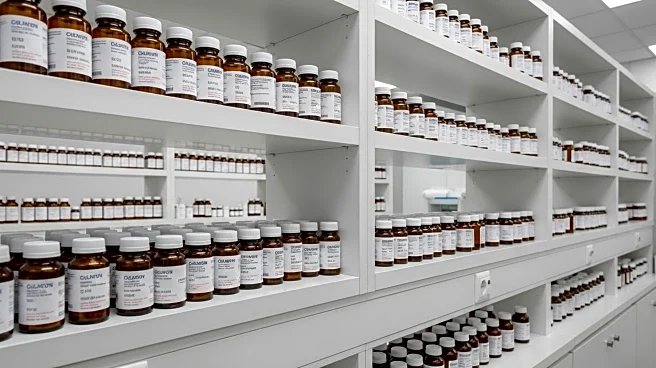What's Happening?
The FDA has introduced a new program aimed at promoting the research and development and manufacturing of generic drugs within the United States. This initiative seeks to expedite the review process for abbreviated new drug applications, which are regulatory filings specifically for generics. To qualify, companies must conduct bioequivalence testing in the U.S. and source their active pharmaceutical ingredients exclusively from domestic suppliers. The program addresses concerns over reliance on foreign drug manufacturing, which poses risks to national security and patient access. Currently, a significant portion of pharmaceuticals in the U.S. are imported, with only 9% of API manufacturers located domestically.
Why It's Important?
The FDA's domestic generics pilot is significant as it aims to strengthen the U.S. drug supply chain by encouraging local manufacturing. This move is expected to enhance national security and ensure patient access to affordable medications. By reducing dependency on foreign suppliers, the program could lead to a more resilient pharmaceutical industry in the U.S. Additionally, the initiative aligns with broader efforts to lower drug prices and improve patient access to essential medicines, supporting public health and economic stability.
Beyond the Headlines
The FDA's focus on domestic manufacturing reflects broader geopolitical and economic considerations, including reducing reliance on countries like China and India for pharmaceutical ingredients. This shift could lead to increased investment in U.S. manufacturing infrastructure and job creation in the pharmaceutical sector. Moreover, the program may set a precedent for future regulatory initiatives aimed at bolstering domestic production across various industries, contributing to national economic resilience.











